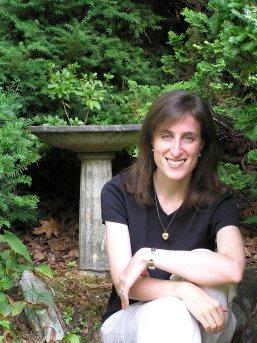Here at Landmarks, we want to highlight composers and musicians who speak so deeply to us. For these qualifications, we needn’t look further than Francine Trester, who composed “A Walk in Her Shoes” which premiered at our September 3, 2021 concert: Rhapsody in Blue and American Portraits. Here is this week’s Composer Spotlight:

Francine Trester, composer. Photo credit: Charles Carrano
Francine Trester
Before we talk more about the piece itself, let’s put a spotlight on Francine’s amazing career. According to her website, www.francinetrester.org, her works go back to 1990, with her first work being listed as “’Lied’ for Soprano and Piano”. According to her staff profile page at www.college.berklee.edu/people/francine-trester, she has commissioned pieces for the Mirror Visions Ensemble, Richard Lalli, Nahant Music Festival, the Scottish Clarinet Quartet, the Rivers School Conservatory and of course, Boston Landmarks Orchestra!
Recent projects include: Shelter Music Boston’s commissioning of Florence Comes Home, Trester’s libretto and chamber opera based on the life of composer Florence Price, and several works composed for guitarist Aaron Larget-Caplan. She currently is a Professor of Composition at Berklee College of Music.
A Walk in Her Shoes
For “A Walk in Her Shoes”, Trester focused on the women who lived along the Boston Women’s Heritage Trail. The piece, written to be performed in 2020 and commissioned by Landmarks, commemorated the centennial anniversary of the 19th Amendment. The performance was postponed due to the COVID-19 pandemic and premiered on Friday, September 3, 2021 at the Hatch Shell.
The Boston Women’s Heritage Trail in of itself has a powerful story to tell. This story was amplified by Trester’s moving piece, which highlighted women such as Geraldine Pindell Trotter, Anna Clapp Harris Smith, Alice Stone Blackwell, The Clapp Family Farm owned by William Clapp and Elizabeth Humphreys, and Ann and Betty, women who were enslaved whose headstones rest in Dorchester’s oldest cemetery.
This particular trail is located in Dorchester, and officially titled the Upham’s Corner Walk. According to the Boston Women Heritage Trail’s website, www.bwht.org/dorchester, this trail was developed by young women who attended the Codman Academy Charter School as part of a course on Dorchester Women’s History. There are eleven women’s stories in total to explore on this historically rich site.
We’ll dive deeper into the women’s stories explored in “To Walk in Her Shoes”. The following information comes from Francine Trester for Boston Landmarks Orchestra’s program notes from the September 3rd, 2021 concert.
Geraldine Pindell Trotter –
The first symphonic song is about Geraldine Pindell Trotter (1872-1918). According to Trester,
“An integral member of Boston’s African American community, “Deenie” Trotter was the accountant and associate editor of The Guardian, the Boston civil rights newspaper, and she worked closely with her husband in forwarding racial justice. The poem refers to The Guardian, and the “icy downpour” mentioned at the poem’s start alludes to the grim weather on the day Deenie was to deliver one of her most famous speeches. Coincidentally, she too was celebrating a centennial – her speech honored the centenary of the birth of abolitionist William Lloyd Garrison. My poem quotes several of her trenchant lines from that speech; the turbulence and sweep of the music reflects the greyness of the day, her passion and challenge to the public.”
Anna Clapp Harris –
The second poem and symphonic song is about Anna Clapp Harris Smith (1843-1937). Trester notes,
“Also a resident of Dorchester, she founded the Animal Rescue League. Deeply dismayed by the sight of stray and abandoned cats and dogs suffering in the streets of Boston, she wrote a letter to the Boston Evening Transcript describing the plight of strays and the need for a shelter for their rescue. Her letter received more than 60 positive responses, culminating in the first meeting of the Animal Rescue League of Boston. The music here is buoyant and optimistic and begins with a setting of a quote from seven-year-old Anna. The following line, “kindness uplifts the world” comes from the forward of the children’s book, Four-Footed Friends, she would later write as an adult. Her book is a collection of stories written to teach kindness toward animals.”
Alice Stone Blackwell –
The third poem and symphonic song explores the point of view of Alice Stone Blackwell (1857-1950). According to Trester,
“Alice Stone Blackwell (1857-1950) is the subject of the third poem and song. A prominent feminist, suffragist and journalist, she was instrumental in paving the way toward the passage of the 19th Amendment. The quotes I incorporated into this poem are largely based on her treatise Why Women Should Vote, in which she takes on many of the spurious questions asked in opposition to women’s suffrage. The music is pointed and determined, as Stone Blackwell argues the vote not only benefits women but society as a whole.”
Ann & Betty –
The fourth part covers two women who were enslaved, named Ann and Betty. Focusing on more of an imagined dialogue between the two, Trester says,
“Much less is known about “Ann and Betty,” two enslaved individuals listed in the Dorchester census of 1754. The fourth poem and song – an introspective, imagined lullaby – is a dialogue between Ann, who died as a child, and Betty, who died at the age of 25. Both are buried at the Old North Burying Ground in Upham’s Corner. They are known only by their first names, and two small headstones mark their graves. African American and “servants” of Colonel Robert Oliver, their anonymity lies in stark contrast to the storied identity of Oliver, a white plantation owner from Antigua. His headstone is in the Old North Burying ground as well, and the disgraceful discrepancy in their lives is felt in how they are acknowledged in death. “Ann and Betty’s” anonymous headstones stand silently, marking not only their graves but also the shameful horror of slavery and racism.”
Clapp Farm –
The fifth and final poem and symphonic song focuses on Clapp Farm, which is not the site of the Dorchester Historical Society. The background as Trester describes is as follows,
“It was originally constructed in 1806 for tanner William Clapp and his wife Elizabeth Humphreys. The family farm developed into a commercial orchard and dairy, and in addition to its success, it was exceptional in its employment of women. Wives, daughters and hired dairymaids were fundamental to its operation and resulted in prize winning dairy products and produce. In recognition of Clapp Farm, a 12-foot statue of a bronze pear stands in Edward Everett Square in Dorchester. The giant fruit was sculpted and installed to honor “the Clapp’s Favorite,” a unique, hybrid fruit developed on the Clapp Farm.”
Conclusion –
To finish the piece, Trester intentionally “…chose to end the cycle with this subject because of the fortuitous name of the family farm that produced it. It seemed fitting to honor the 19th Amendment with the “Clapp” name, the sound of “clapp-ing” and joy – applause for legislation that, one hopes, brings us a step closer to equality, equity, and justice.”
Trester brought to life the stories of these women who were so important in Boston history and rightfully have a place in The Boston Women’s Heritage Trail to have their stories live on. The next time you find yourself in Dorchester near Upham’s Corner, visit some of these sites to experience the stories first hand and feel the power of this piece around you.
For more information on Francine Trester’s work, visit her website at www.francinetrester.org.

[…] narrated by David Howse and the world premiere of “A Walk in Her Shoes” by Boston composer Francine Trester!Check out the page on our website to learn […]